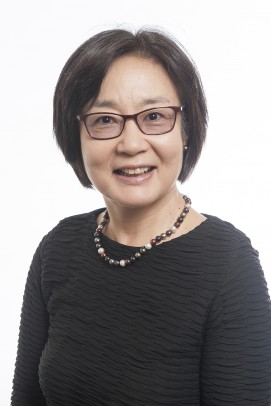Exercise program improves performance of daily activities for frail older adults
An exercise program comprised of gentle exercises and taught by home care aides can help frail older adults perform basic daily activities, according to a new study by researchers at the University of Illinois at Chicago published in The Gerontologist.
“Despite evidence proving the benefits of regular physical activity for all people, regardless of age and ability, our health care system and long-term care norms encourage dependent behavior in older adults,” said corresponding author Naoko Muramatsu, associate professor of community health sciences in the UIC School of Public Health and fellow of the UIC Institute for Health Research and Policy.
“This study challenges our passive care model and is one of the first to test an intervention for frail seniors using home care aides,” she said.
The program, called Healthy Moves for Aging Well, includes three low-risk, gentle exercises: a seated step-in-place, arm curls and an ankle point-and-flex to home-bound older adults. Aides remind clients of their health goals and provide motivation to complete the exercises daily during regular visits.
For the study, Muramatsu and colleagues looked at the outcomes of 54 clients aged 63 to 101 living in Chicago who participated in Healthy Moves for Aging Well in a Medicaid and state-funded home care setting for four months. The researchers saw improvement in the ability to perform basic activities, such as getting to the toilet and pouring a drink from a carton, and light daily tasks, such as preparing meals and doing laundry.
“Improvement in these small tasks makes a large difference when it comes to quality of life, especially in a society that has not yet caught up to the needs of its aging population,” Muramatsu said. “Few physical activity programs target older adults who have difficulty with basic activities, such as standing and walking. Programs that do so effectively—through physical or occupational therapy, for example—are often too expensive for wide dissemination among this group of people.”
“We are excited to see function and health outcomes improve, and we are also very excited to see that participation and satisfaction with the program was high,” Muramatsu said. “This tells us that the program is sustainable for wider dissemination.”
Ninety-eight percent of clients reported high levels of satisfaction with the program and 80 percent reported the program was “just right.”
And, clients are not the only ones who benefit from this program. The research also found the program empowered and benefited home care aides—one of the fastest growing occupations is the U.S.—who often lack access to wellness initiatives provided in more traditional workplaces. These secondary findings are published in the International Journal of Environmental Research and Public Health.
Muramatsu plans to enroll approximately 300 home-care aides and their clients, in future studies. The goal, she says, is to develop a sustainable health promotion program that can be used widely by all kinds of people and organizations in community-settings.
Lijuan Yin, Michael Berbaum, David Marquez, Joseph Zanoni, Katya Cruz Madrid, and Surrey Walton from UIC and Donald Jurivich from the University of North Dakota are co-authors on the paper in The Gerontologist. Lijuan Yin and Ting-Ti Lin from UIC are co-authors on the paper in the International Journal of Environmental Research and Public Health.
The studies were funded by grant no. R21AG042801 and R01AG053675 from the National Institute on Aging, one of the National Institutes of Health; cooperative agreement no. U48DP005010 SIP 14-031 from the Centers for Disease Control and Prevention; and grant no. UL1TR002003 from the UIC Center for Clinical and Translational Science.

